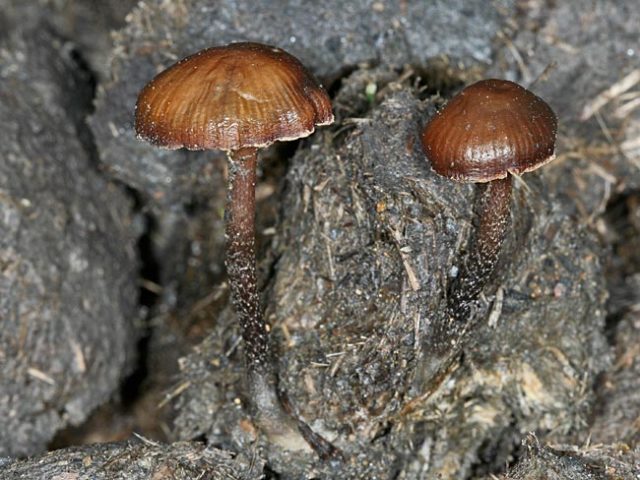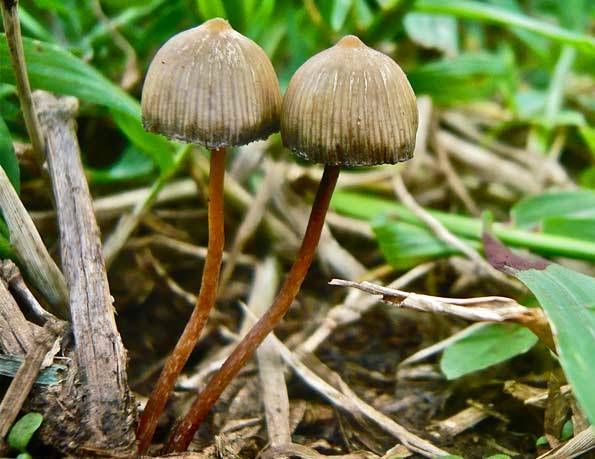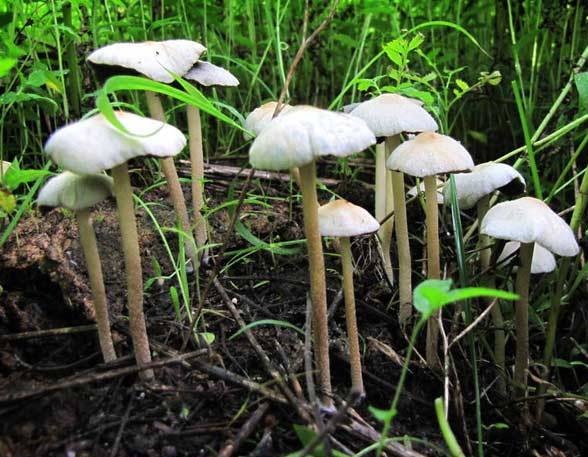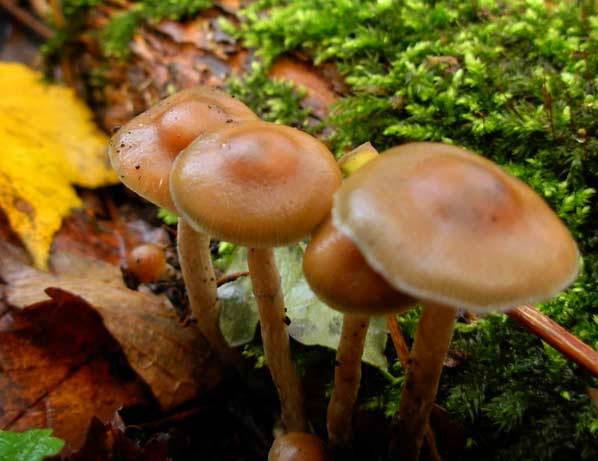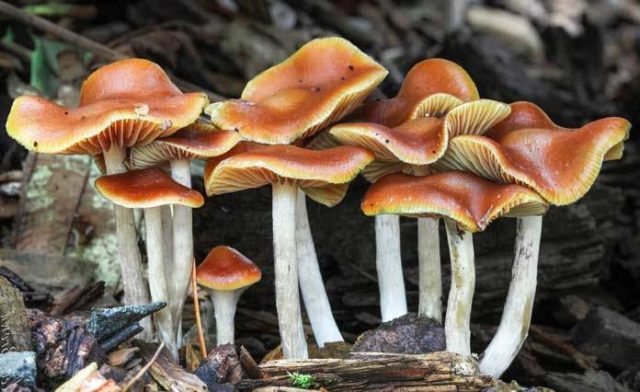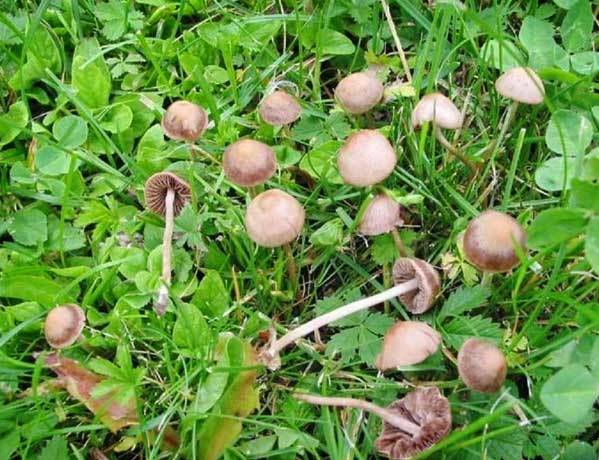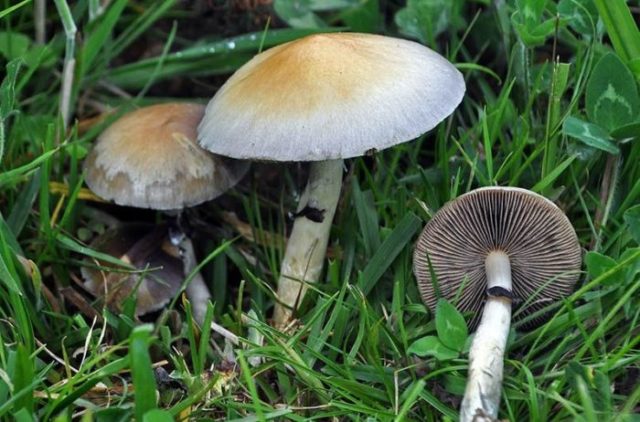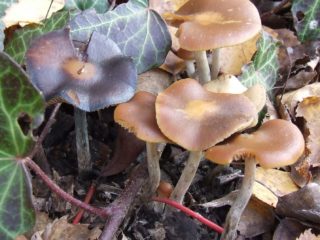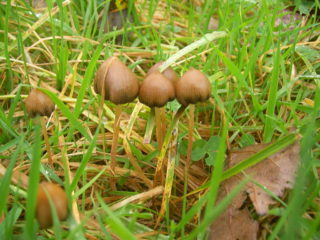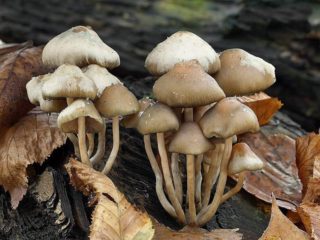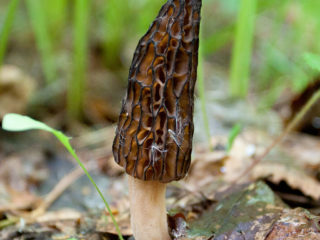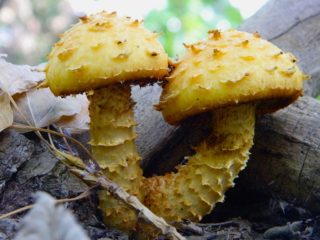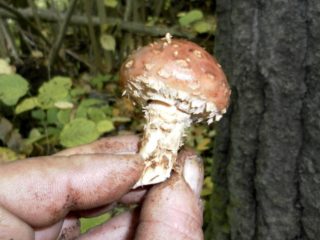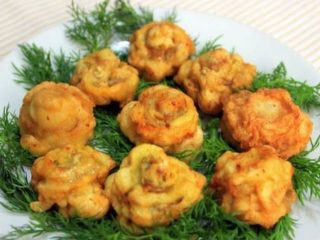Content
Psilocybe Montana belongs to the Strofariev family. Has a second name - mountain psilocybe.
What does psilocybe Montana look like?
Psilocybe Montana is a rather small mushroom. To protect your health, it is important to be able to distinguish this specimen and bypass it.
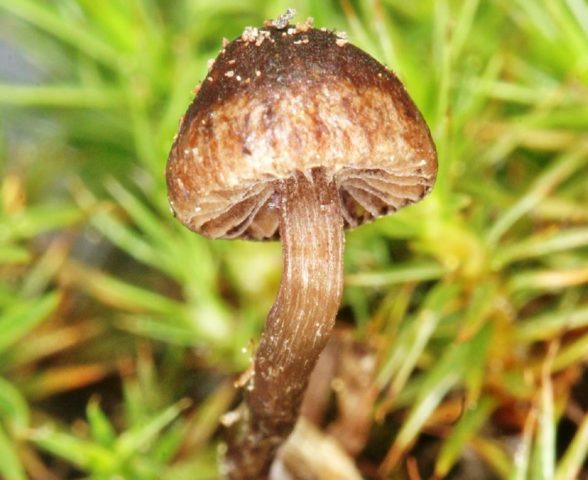
The very appearance of the mushroom reminds of its inedibility.
Description of the hat
The cap is small in diameter, from 6 to 25 mm, the width exceeds the height by 2 times. As it grows, its shape changes from semicircular to elongated semicircle. A distinct tubercle is observed from above.
While the mushroom is young, the cap is in the shape of half a hemisphere. It may be slightly elongated, with a distinct tubercle in the center. The surface of the cap is glossy and smooth. The color can be influenced by weather conditions. Depending on climatic factors, the color also changes: glossy brown with high humidity, brown-gray when dry. Hat with notches, finely fleshy. Inside there are plates that are attached to the leg.
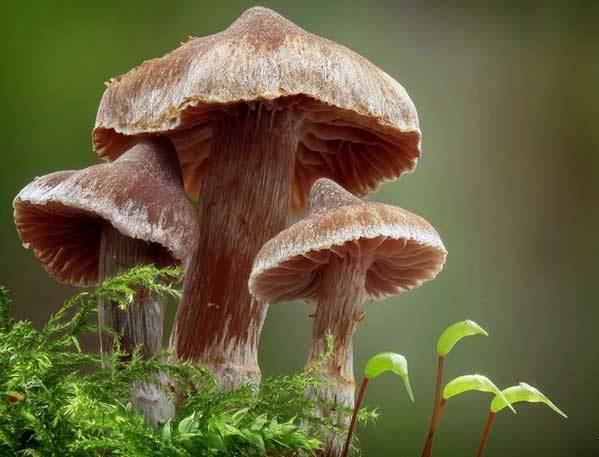
As the plates grow, they can change color.
Leg description
The mushroom stem is thin, cylindrical, curved, smooth, with a slight thickening towards the bottom. Height from 2.5 to 8 cm, in diameter only about 0.3 cm.
The leg is pale brownish in color. On its top, velvety is observed, which is created by whitish-transparent fibers. There is no ring on the leg.
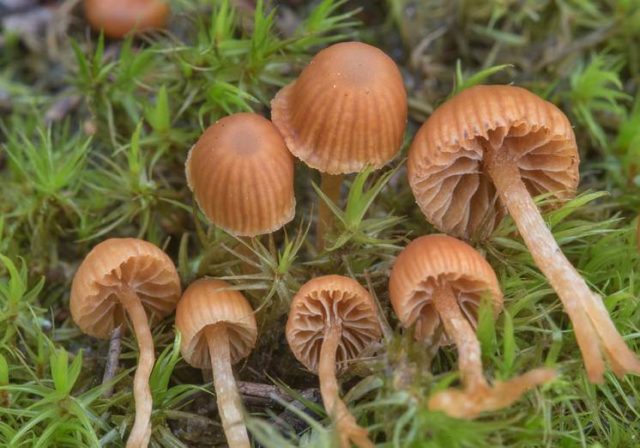
These mushrooms sometimes appear in the vicinity of St. Petersburg
Where and how it grows
Psilocybe Montana most often grows:
- in forests;
- in mountainous terrain;
- on soils with a predominance of sand;
- in areas covered with moss;
- among the ferns.
Fruiting occurs in 2 stages. The first one - from the end of May to July, the second - from August to the end of autumn.
In some climatic regions, Montana psilocybe can be found even at the beginning of winter.
Is the mushroom edible or not
Psilocybe Montana belongs to poisonous mushrooms. Contains psychoactive substances that cause severe hallucinations, affect the psyche, provoke heart disorders, vomiting, diarrhea, tremors, and anxiety. Eating is strictly prohibited.
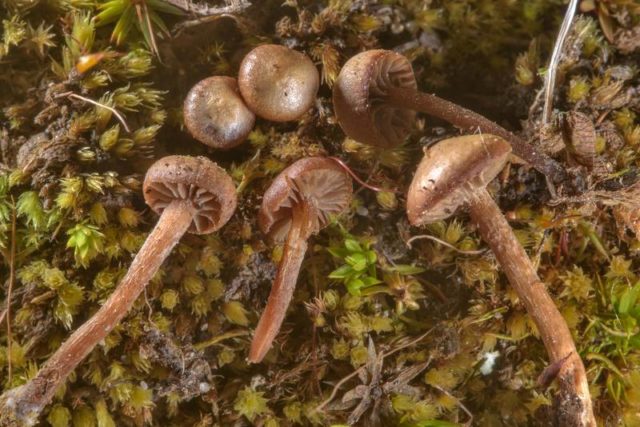
This type of mushroom often grows in groups.
Mushroom twins
There are many doubles. All of them are dangerous to human health:
- Stropharia shitty (Poop bald head). The mushroom is small in size but very dangerous. Eating is strictly prohibited.
- Psilocybe Mexican. The mushroom itself is not poisonous, but it has a strong negative effect on the central nervous system.
- Paneolus blue (Panaeolus cyanescens). Grows in meadows and pastures, among a large amount of manure. It is considered one of the most psychotropic mushrooms.
- Psilocybe czech (Psilocybe bohemica). Grows in deciduous or pine forests on decaying branches. Eating causes fainting, panic, and loss of coordination. Promotes the death of brain cells.
- Psilocybe blue (Psilocybe cyanescens).A small mushroom that settles in forests, meadows, usually near roads. Refers to poisonous. After use, hearing and vision are impaired, a person feels pain in the stomach, feels chills.
- Sulfur head (Hyphaloma cyanescens). A small specimen, very toxic, classified as poisonous. In addition, it leads to severe hallucinations, a change in the psyche, a person simply loses touch with reality.
- Psilocybe Cubensis (San Isidro). It grows exclusively in Central America, where it grows among the manure.
Conclusion
Psilocybe Montana or mountain - a very small specimen. Belongs to the category of poisonous mushrooms. Contains psychotropic substances and hallucinogens. Eating is strictly prohibited.
